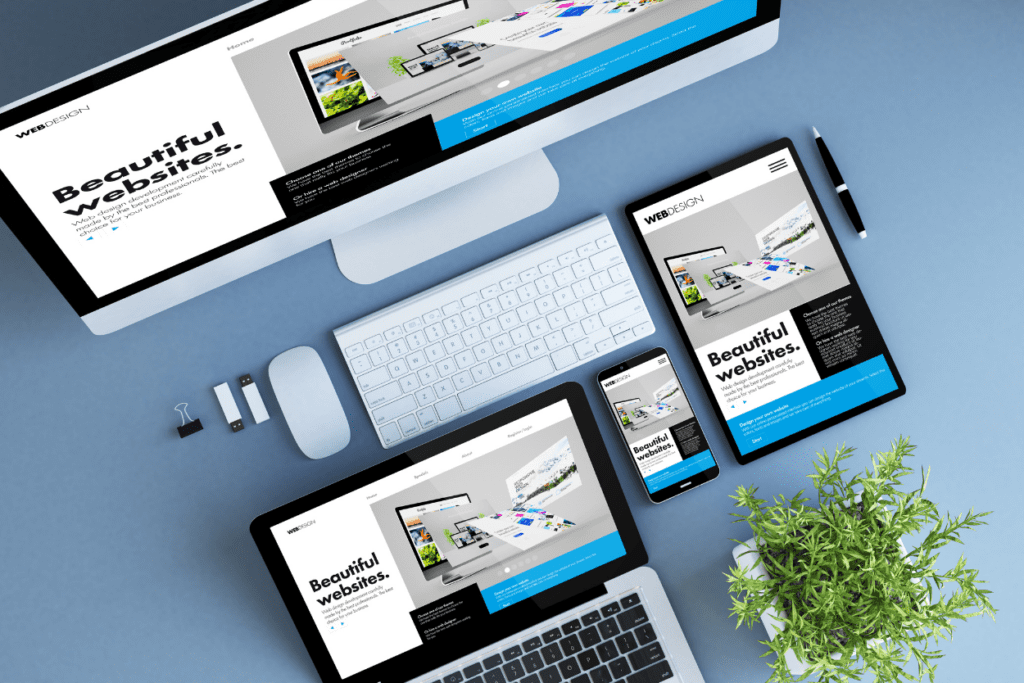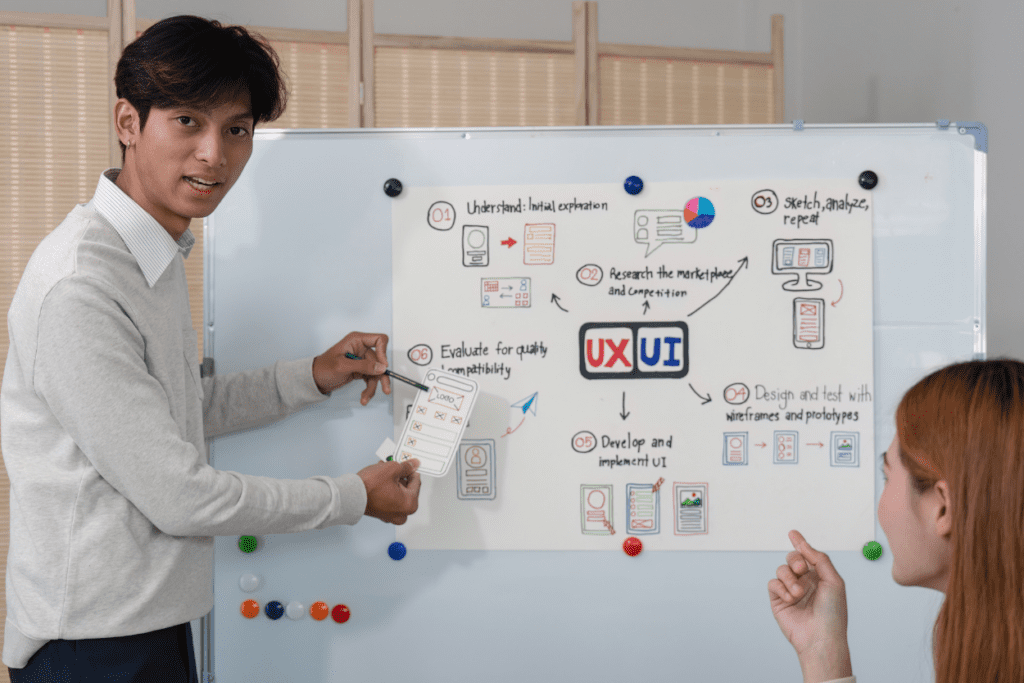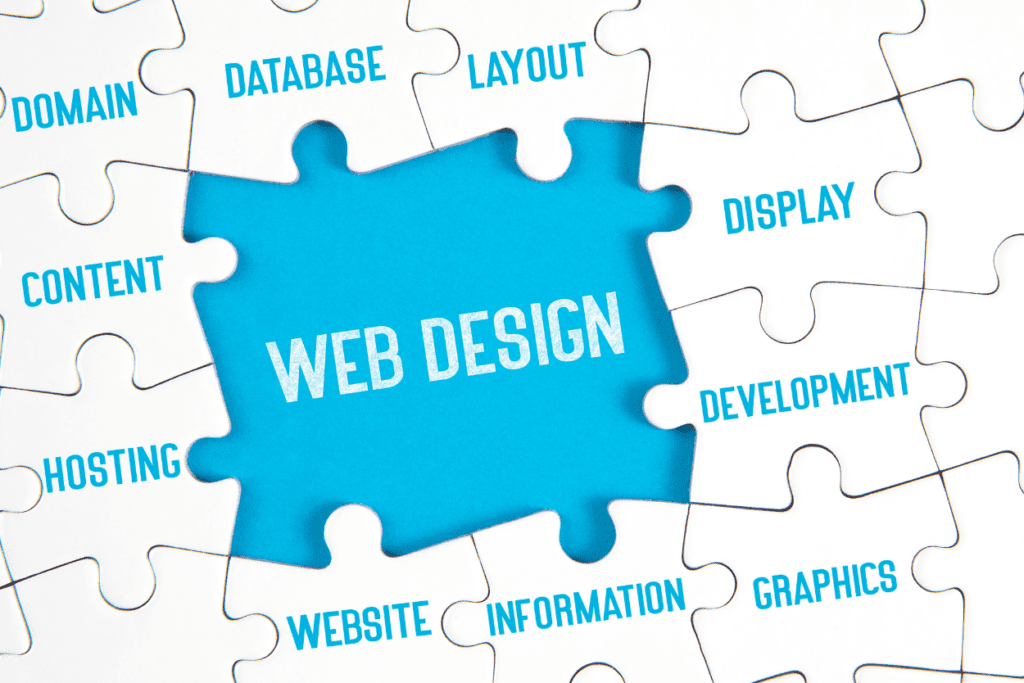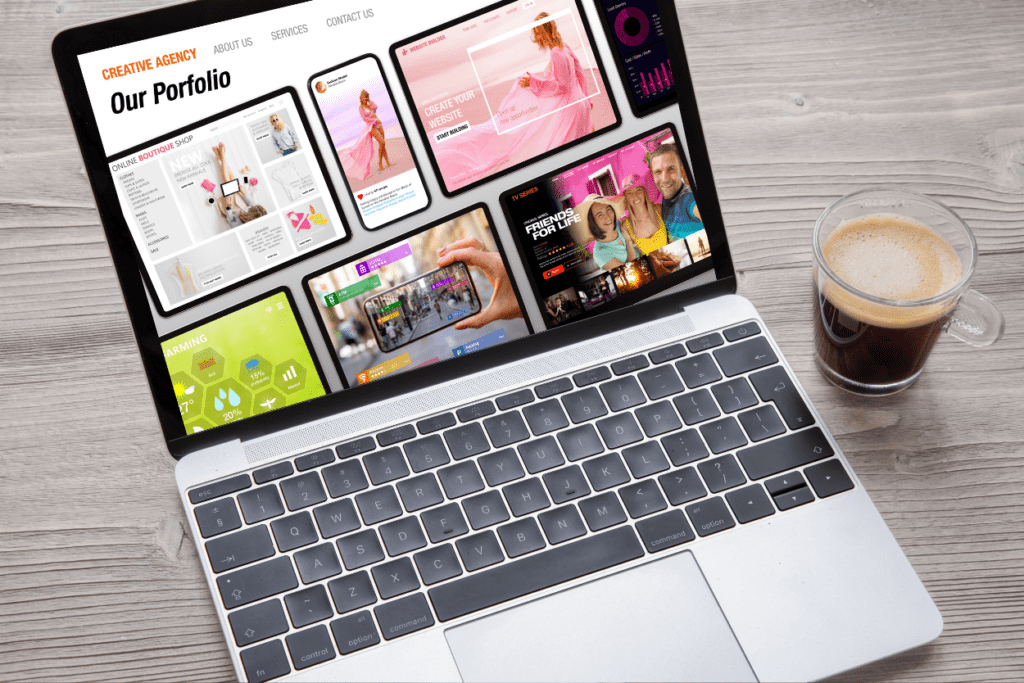- Free Estimates

Hiring a website designer is crucial for your business’s online success, as your website often serves as the first point of contact with potential customers. A well-designed site boosts credibility, enhances user experience, and drives sales. In fact, 53.8% of web designers cite “lack of responsiveness across all devices” as a top reason for redesign, highlighting the importance of mobile-friendly design. However, many businesses make common mistakes that result in wasted time, resources, and frustration.
Here are 10 mistakes to avoid when hiring a website designer and how to ensure you get the best results for your investment.
Key Takeaways
Why Hiring the Right Website Designer Matters
How Expert Website Designer Impacts Your Business
10 Mistakes to Avoid When Hiring a Website Designer
1. Not Having a Clear Vision for Your Website
2. Paying Too Much for Services You Don’t Need
3. Choosing the Cheapest Option to Save Money
4. Not Staying Involved in the Design Process
5. Expecting a Web Designer to Handle Development and Design
6. Overlooking the Importance of a Content Management System (CMS)
7. Choosing the First Designer You Find Without Research
8. Not Taking Advantage of Additional Services Offered
9. Being Impatient with the Process
10. Forgetting About Long-Term Web Maintenance
What to Look for in a Website Designer
Frequently Asked Questions
Transform Your Online Presence with Miami Website Design Professionals!
✔ Have a clear purpose and specific goals for your website before hiring a website designer to ensure alignment.
✔ Don’t pay for unnecessary services that don’t directly contribute to your website’s needs and goals.
✔ Opt for a quality website designer, even if it costs more upfront, to avoid poor design and costly future fixes.
✔ Regularly provide feedback and stay engaged in the design process to ensure the final product meets your expectations.
✔ Know that website design and development are different; hire both if your project requires advanced technical features.
✔ Ensure your website designer integrates a CMS so you can manage updates yourself without always relying on the designer.
✔ Don’t overlook additional services like SEO or branding, as they can improve your site’s effectiveness.
✔ Websites require ongoing updates and maintenance, so discuss long-term support with your website designer upfront.

A visually appealing website won’t do much for your business if it’s difficult to use. Great website designers create sites that are both attractive and functional.
Selecting the right website designer is crucial for creating a website that not only looks professional but functions efficiently to serve your business goals. Websites are more than just static pages; they are tools for engagement, brand awareness, and lead generation. A skilled website designer knows how to blend aesthetics with functionality, optimizing the site for both user experience (UX) and search engines.
They ensure:
A good website designer will impact your business in the following ways:
To ensure a smooth website design process and avoid costly errors, it’s important to be aware of these 10 common mistakes when hiring a website designer.
One of the biggest mistakes businesses make when hiring a website designer is not having a clear vision. If you don’t know what you want from your website, it’s difficult to communicate effectively with the designer, leading to misaligned expectations and a subpar final product.
Another common mistake is paying for unnecessary services. Some website designers offer comprehensive packages that may include advanced marketing tools, analytics platforms, or premium plug-ins that you don’t need, especially if you’re a small business just starting.
While it may be tempting to save money by hiring the cheapest website designer, this can be a costly mistake in the long run. Low-cost designers often cut corners, resulting in poor design quality, lack of functionality, and delays.
Some business owners hand over the project to the website designer and disengage from the process, trusting the designer to make all the decisions. While you hire the website designer for their expertise, it’s essential to stay involved and provide feedback.
Many people confuse web design with web development, assuming that a website designer can also handle the technical aspects of coding and server management. This can lead to delays or unmet expectations when you discover the designer isn’t equipped to build out complex functionality.
A CMS allows you to make updates to your website without needing to know how to code. It provides the flexibility to manage your website in the future without relying on the designer for every update.Failing to use a CMS can leave you dependent on your website designer for every little change, costing you time and money in the long run.
Rushing into a decision and hiring the first website designer you find can lead to disappointment. Without comparing portfolios, reviews, and pricing, you might miss out on a designer who is a better fit for your project. Doing your research will help you find the right website designer near me who fits your project and budget.
Many website designers offer more than just design services. They may provide additional services like SEO optimization, social media integration, or branding advice. Ignoring these options could mean missing out on opportunities to improve your site’s performance. Taking advantage of a website designer’s full range of services can improve your site’s effectiveness and save you time in the future.
Building a website takes time. Rushing the process or expecting a website to be ready in just a few days can result in a low-quality site that doesn’t meet your business needs.
Once your website is launched, it requires regular maintenance to keep it running smoothly. Neglecting to plan for maintenance can result in security vulnerabilities, slow loading times, and outdated content.

When hiring a website designer near me, it’s essential to choose someone with the right skills and approach. Use this checklist to ensure you find a designer who meets your needs:
Before hiring a website designer, ask about their past experience, portfolio, and specific design process. You should also inquire about the timeline for completion, maintenance services, and SEO capabilities. Understanding their communication style and how they handle revisions is equally important.
The time to design a website depends on its complexity and the designer’s workload. On average, a small business website can take between 4 to 12 weeks from planning to launch. The timeline may be extended if your project involves custom features or requires multiple revisions.
Hiring a freelance website designer is usually more cost-effective and can be ideal for smaller projects. A design agency, however, offers a broader range of services, such as branding, marketing, and ongoing technical support. Choose based on your specific needs, budget, and the scope of the project.
A local website designer allows for in-person consultations, which can lead to more personalized service and better collaboration. They are also more likely to understand your regional market, helping to tailor your website to local customers. Additionally, they may provide faster support for ongoing maintenance or updates.
Check their portfolio to see if they have designed websites for businesses in your industry or with similar functionality needs. You can also ask directly about their experience working on related projects. An experienced designer will understand your specific audience and business requirements more effectively.

If you’re a business owner in Miami, FL, and looking to create a stunning, functional website that drives results, Miami Website Design Professionals is here to help. With a deep understanding of the Miami, FL market, Miami Website Design Professionals ensures your website reflects both your brand and the needs of your audience. Don’t wait—reach out to Miami Website Design Professionals today and give your business the online presence it deserves in Miami, FL!
FOLLOW US